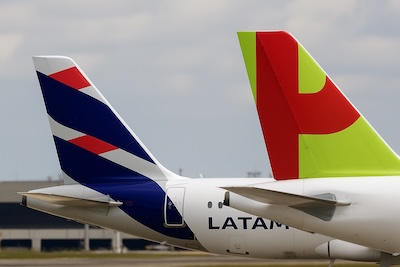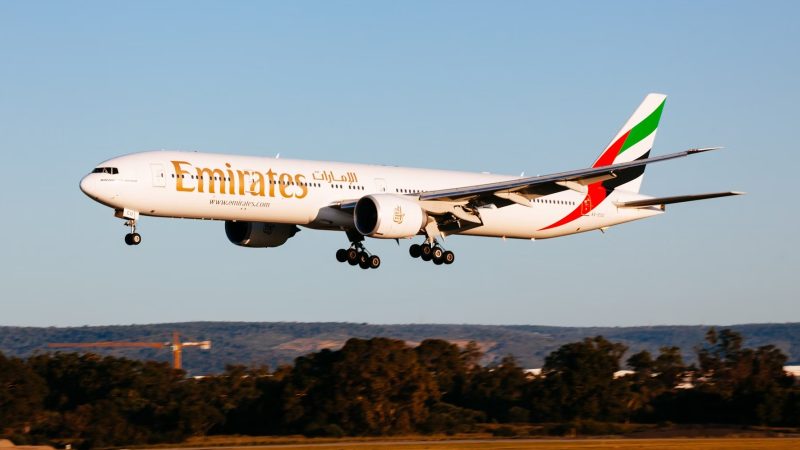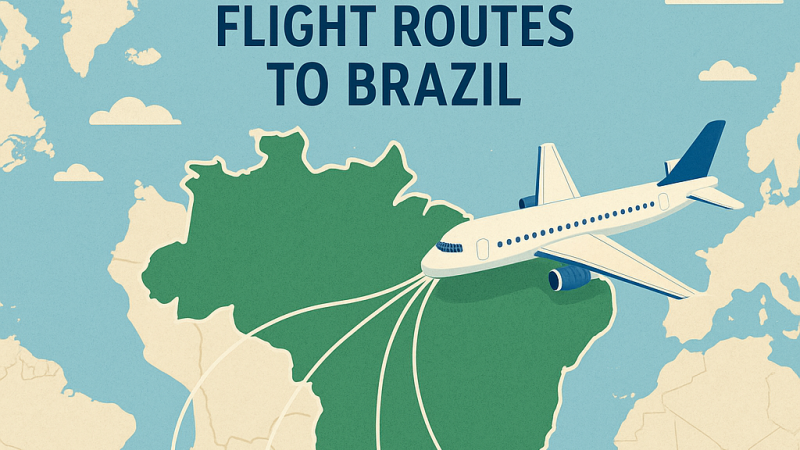Air travelers want cleanliness and flexibility
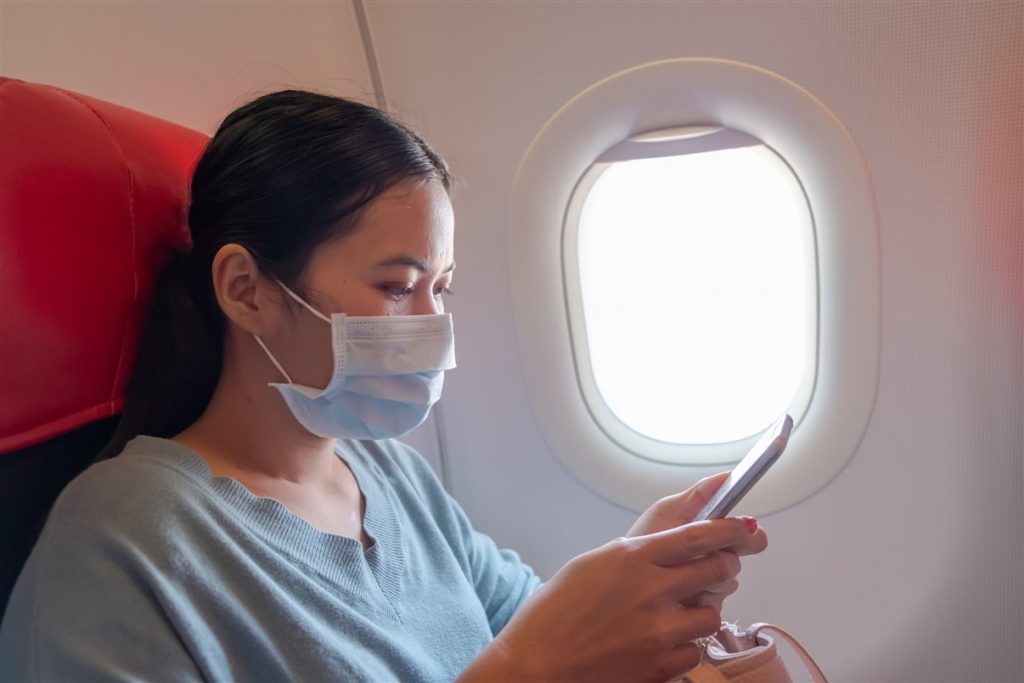
The aviation industry was one of the highlights of newspaper headlines and news portals during the pandemic, with the image of several aircraft parked without being able to fly still marked in our memory. Empty airports, layoffs and billions of dollars lost were added to the worst crisis in the industry’s history. But the resumption has already begun and players in the aviation industry need to reconnect with the traveler, who seeks safety, confidence, facilities, flexibility and a service with less physical contact.
Travelport’s research released this week, done in a quantitative and qualitative way (with suppliers, travelers and travel agencies), brings the main concerns of the players involved and trends that show the path of recovery.
Check it out below:
71% of respondents said that an improved cleaning program during and between flights is a very important factor and would influence when making a reservation for a flight;
69% of travelers said that the offer of alcohol gel at the points of delivery and baggage claim is very important;
68% believe that social distance is an essential measure at airports and 66% consider it a very important action on board aircraft;
66% of the surveyed travelers consider temperature checking to be very important, both at the airport entrance and before boarding;
and 64% said it was very important for companies to have a fully flexible and refundable ticket policy.
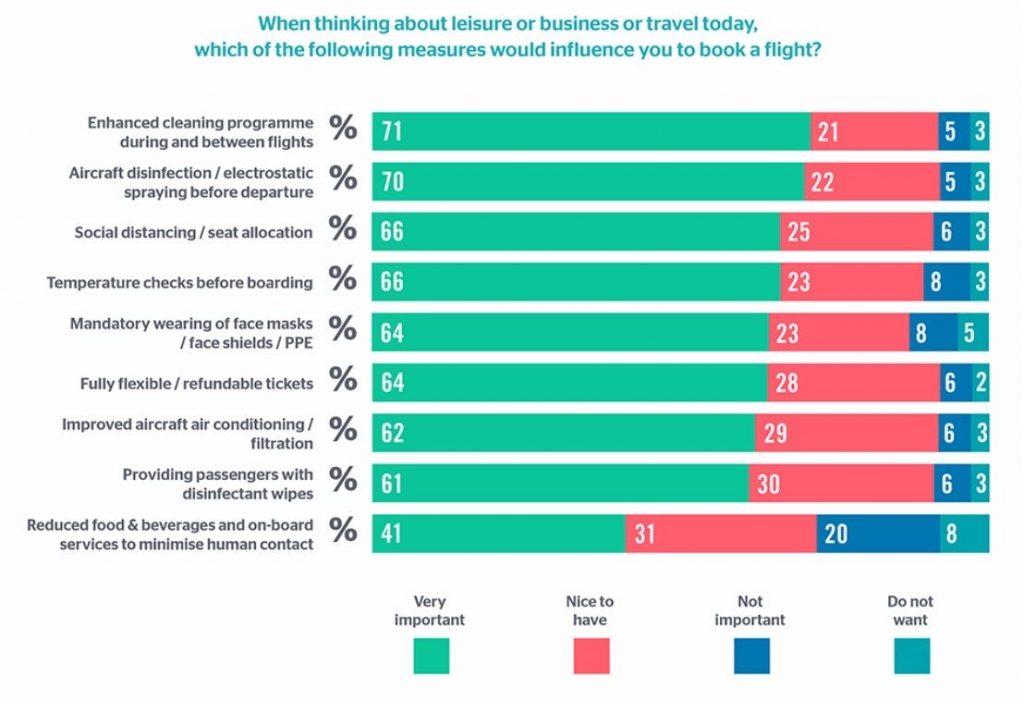
Overall, travelers want as many safety measures as possible, with most cleaning and hygiene procedures being seen as important in the return of confidence in traveling. “Our research shows signs that there is a willingness to fly, as long as the measures are applied at key points in the customer’s journey,” says Travelport in the study’s analysis. More than half of travelers said they would consider booking a flight if they knew in advance that strict health and safety measures were taken by the airline and the airports involved in the trip.
IN THE AIRPORT
In their survey of airlines, they said that airports should ensure that their public spaces are comfortable and allow social distance. Otherwise, people will not travel, even though they know the measures of the airlines. Among the measures are disinfection in places of touch or physical contact, transparent partitions at the counters, mandatory use of masks for employees and travelers and more passenger advance at the airport.
Lounges are expected to return more slowly in the coming months and only 8% said they would not like them to be closed, while 39% consider it a very important item and 31% something nice to have.
The companies also suggested that the temperature check, seen as essential for 66% of respondents, be done before the traveler goes through the security X-ray and not at the boarding gate, to avoid delays in the final stage of the pre-boarding process, after the customer has passed other queues.
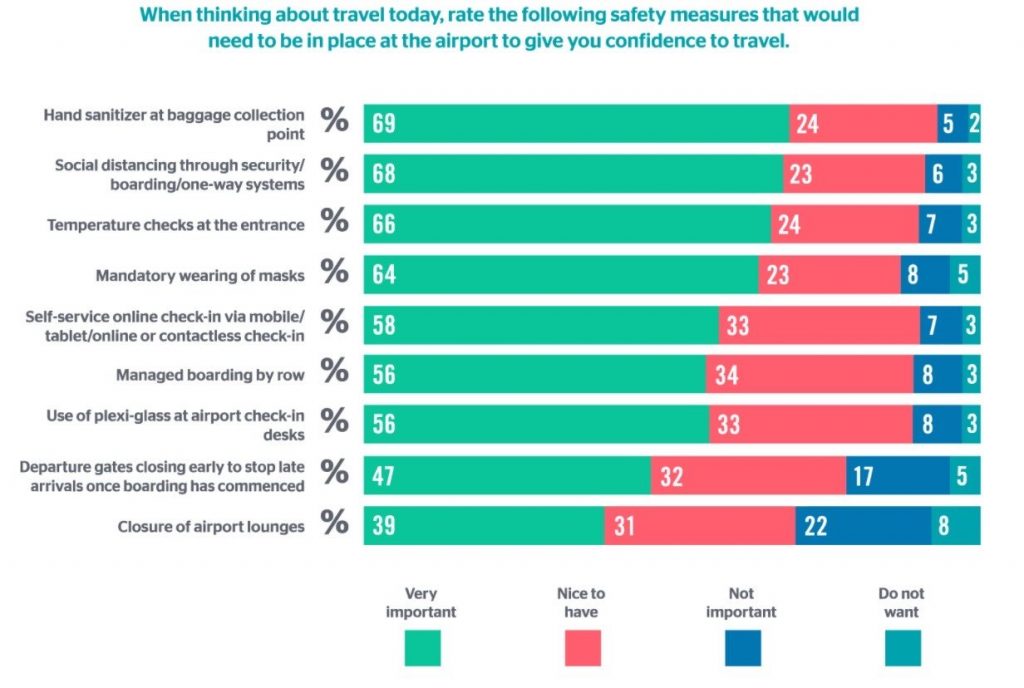
CHECK-IN AND BOARDING
58% of travelers want to do their own online or contactless check-in at the airport.
Upon boarding, most companies adopted closing the gate half an hour before the flight, to avoid last minute arrivals and allow social distance in the process. Approximately 50% of travelers consider the measure to be very important, while 56% think the same for boarding by rows.
On board, the new cleaning measures (71%) and social distance (66%) are the items preferred by travelers. Refundable rates also have a high approval rate (64%).
Most airlines, however, are not blocking middle seats (only 8 out of 85 heard in August), although there is flexibility to distribute passengers on the flight or place them on empty planes. In the case of international flight, the distance is more difficult and this can be a determining factor for the return of customers. One of the companies surveyed said it is creating promotions for more than one family member traveling together, as they are people who do not need to distance themselves socially.
The survey also brought the prospect of cutting capacity (48% are taking short-term action in this direction), investment data on reserve facilities (accelerating NDC adoption is seen as a key to recovery through a sale friendlier and more personalized) and the behavior of online sales, with a higher than normal share, despite the fact that marketing is as low as that of offline media.

